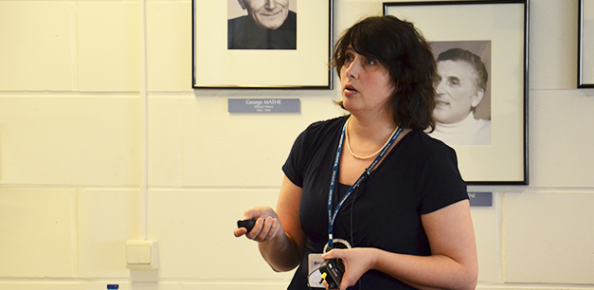EORTC’s Anastassia Negrouk speaks out on the EU Data Protection Regulation
15 Dec 2014
Protection of privacy is a serious matter. However, in health research, straightening and narrowing participant’s consent or limiting data storage in time is unlikely to increase the level of protection. On the other hand, these measures would surely jeopardize health research and progress of medical science violating rights on adequate health care and freedom of research.
In an interview appearing in the European Voice, EORTC’s Anastassia Negrouk urges the EU Parliament, Council, and Commission as well as all stakeholders to avoid rushing into any premature consensus as far as health research is concerned before careful consideration of each detail.
The EORTC invites regulators to keep an important level of flexibility in this part of regulation (through delegated act mechanism) to enable its further adaptation to international research, new technologies and needs of science, individuals to be protected and society as whole.
John Bean, PhD
EORTC, Medical Science Writer
Related News
Meet the new EORTC Board
9 Jul 2024
We are pleased to announce the release of the EORTC 2023 Annual Report
17 Jun 2024
Dr Denis Lacombe, EORTC CEO, appointed stakeholder co-chair of ACT EU advisory group
24 May 2024
Clinical Trials Day 2024: a Q&A on pragmatic clinical trials
20 May 2024
EORTC/EMA workshop suggests an international way forward for treatment optimisation studies
8 May 2024
EORTC’s Participation at the ESTRO Congress 2024
29 Apr 2024
EORTC: Advancing research and treatment for rare cancers
29 Feb 2024
EORTC Fellowship Programme: celebrating more than 20 years of impactful collaboration
22 Feb 2024
Appointment of Malte Peters as EORTC Strategic Alliance Officer
9 Feb 2024
Unique series of workshops in partnership with the European Medicines Agency (EMA)
7 Feb 2024


